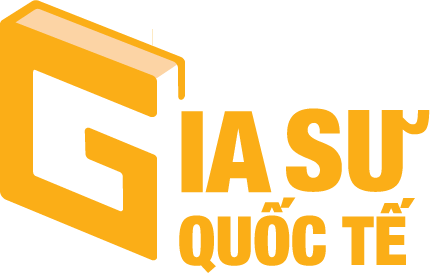Pathway for graduate scholarship hunting
Pathway for graduate scholarship hunting
- Thursday June 3rd, 2021
- Posted by: Gia sư Quốc tế

GSQT – To be successful in the pathway for graduate scholarship hunting, you need to refer to the preparation steps to have the best profile.
Necessary conditions in the pathway for graduate scholarship hunting
Condition 1: GPA
For students, if you have dreams of receiving a full scholarship, you should strive to achieve a minimum GPA of 7.0 to be eligible to apply. GPA is only a necessary, not an eligible condition to receive a scholarship and GPA requirements may vary depending on the specified scholarship program.
Condition 2: International English test score for IELTS / TOEFL iBT
Most scholarship programs require candidates to achieve a minimum IELTS score of 6.5 or TOEFL iBT 79. The above English standards may vary depending on the specific scholarship program. All selection rounds assess English proficiency. Therefore, you must invest English seriously to be able to achieve the standards set by the program. Some scholarship programs require applicants to have additional GRE or GMAT.
Condition 3: Work experience
Many of you eager to earn scholarships right after graduating from college. However, most of the scholarship programs either government or school require applicants to have work experience. Some scholarships are required if you receive a scholarship, you must be approved by the host agency to study.
Usually the number of years of work experience is calculated after graduating from university, some scholarships allow including while studying at university. Each scholarship program has its own specific and specific regulations on the number of years of work experience, usually ranging from one to two years. However, there are also some scholarship programs that do not require work experience.
The stages in the pathway for graduate scholarship hunting
Stage 1: Preparation
The purpose of this preparatory phase is to meet the requirements of the scholarship programs. There are two main types of scholarships for postgraduate study: government scholarships and universities around the world for those who want to study masters and doctoral degrees. To apply for a graduate scholarship program, you must meet the following three conditions:
- Overall score of GPA university course from 7.0 or above.
- English proficiency IELTS 6.5 or TOEFL iBT 80 or above, candidates also need to score GRE or GMAT depending on the requirements of the scholarship program.
- Minimum work experience of one to two years or more.
In addition, the scholarship program also requires other factors such as leadership skills, participation in research projects, articles published in academic journals, contributions to work, to the community as well as society…
Stage 2: Find out information
Along with your preparation, you can start searching for scholarship program information. Scholarship information is often published on the websites of government and university scholarship programs, shared by many other channels.
You find information and then choose the scholarship program with the profession and your right criteria to apply for. This stage is time consuming, requires persistence and hard work. You can save time looking for information by learning from friends or brothers who have experience in hunting scholarships.
Stage 3: Documentation
After preparing and finding a suitable scholarship program and meeting the requirements of that program, the scholarship “hunters” can begin to complete the scholarship application as required. Each scholarship program has specific requirements for which documents must be submitted. The postgraduate scholarship hunting dossier set includes 4 basic documents:
- Statement of Purpose (SOP) / Letter of Motivation (LOM): A personal essay (SOP) is a must for the application as well as for scholarship hunting. The essay outlines the purpose of applying for or applying for a scholarship.
- Letter of Recommendation (LOR): Scholarship programs usually require applicants to submit one to three letters of recommendation. LORs are written by authorized persons to provide information necessary for the school’s admissions committee to evaluate and select satisfactory candidates.
- Study plan or research protocol (Study Research Objectives / Study Plan / Research Proposal): In this document, the selection committee asks you to plan learning plans and objectives as well as research, help They can judge you as a suitable candidate for the program.
- Curriculum Vitae / Resume: This basic but equally important document shows an overview of the candidate’s qualities and experiences, through which the selection committee has an overview with you.


 Tiếng Việt
Tiếng Việt